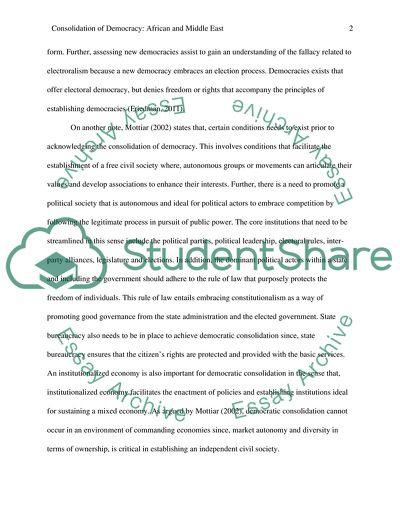Cite this document
(The Consolidation of Democracy: Africa and the Middle East Literature review Example | Topics and Well Written Essays - 2000 words - 2, n.d.)
The Consolidation of Democracy: Africa and the Middle East Literature review Example | Topics and Well Written Essays - 2000 words - 2. https://studentshare.org/history/1803981-regional-politics-africa-middle-east-or-east-asia
The Consolidation of Democracy: Africa and the Middle East Literature review Example | Topics and Well Written Essays - 2000 words - 2. https://studentshare.org/history/1803981-regional-politics-africa-middle-east-or-east-asia
(The Consolidation of Democracy: Africa and the Middle East Literature Review Example | Topics and Well Written Essays - 2000 Words - 2)
The Consolidation of Democracy: Africa and the Middle East Literature Review Example | Topics and Well Written Essays - 2000 Words - 2. https://studentshare.org/history/1803981-regional-politics-africa-middle-east-or-east-asia.
The Consolidation of Democracy: Africa and the Middle East Literature Review Example | Topics and Well Written Essays - 2000 Words - 2. https://studentshare.org/history/1803981-regional-politics-africa-middle-east-or-east-asia.
“The Consolidation of Democracy: Africa and the Middle East Literature Review Example | Topics and Well Written Essays - 2000 Words - 2”. https://studentshare.org/history/1803981-regional-politics-africa-middle-east-or-east-asia.


